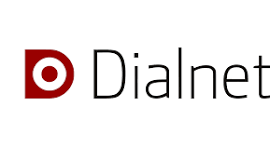The Academic Counseling National Open University
Keywords:
academic advising, students, academic advisorsAbstract
This article contrasts the theoretical and actual profile of academic advising in the National Open University, based on analysis of documents and articles concerning the topic above, the review of scientific papers, books and manuals written about this area have established a number of considerations that advisors and students should know, in order to assist the process of instruction and student success in this open system. It begins with the theoretical diving the characteristics of the accompanying service support which students use it according to their interest, for each of the actors, students, advisors and the institution, its characteristics are sometimes merged into other seem to tend to the situation and differences of opinions. This is how academic advising becomes the focal point of the student or permanent contact with the National Open University in which he makes the process of instruction in a specific area of knowledge or related fields. In this process of interaction is achieved the process of academic and pedagogical feedback, facilitating and ensuring the motivation of users and support the learning processes themselves. It occurs regularly in instructional programs and ensures institutional presence in front of the student, thus forming the service as the eldest element of open and distance learning in open university system. Finally we establish a number of considerations, which mentioned the imperative need to promote the formation of an independent student, self, capable of dealing with active learning and under your sole responsibility. This view of academic advising have to grow both as a student advisor for the latter to regulate the factors determining their academic achievements.
References
Adam, F. (1970). Andragogía ciencia de la Educación de Adultos. FIDEA. Caracas.
Bavativa de G, M. y González P, I. (1986). El sistema tutorial en Colombia. Bogotá: Proyecto PNUD/UNESCO/ICFES.
Bermúdez, M. (1990). Como desarrollar la autodirección en el estudiante universitario a distancia. El papel de los Servicios Estudiantiles. Informe de Investigaciones Educativas IV (1 y 2).
Castro, B. (1992). El asesor académico en un sistema abierto y a distancia. Sus roles, funciones y tareas. Caso: Centro Local UNA Trujillo. Tesis de Maestría no publicada, Universidad Nacional Abierta: Trujillo.
Cruz, M. (2002). Manejo de la emociones (amor y miedo) en el proceso de asesoría académica. Tesis doctoral no publicada. Maracay: Universidad Bicentenaria de Aragua.
Fresco C, X. & Segovia L, F. (2001). La acción tutorial en el marco docente. En la función tutorial. Homo Sapiens Ediciones. 1ra ed. Rosario-Santa Fe.
García Aretio (2002). Educación a Distancia. De la teoría a la práctica. Madrid: Ariel Educación.
Gibbs, A (1991). Asesoramiento de contenidos: procedimientos prácticos. Caracas, UNA.
Hölmberg, B. (1975). Educación a distancia. Situación y perspectivas. Buenos Aires: Kapelusz.
Jhonson D, Jhonson R (1985). Motivacional processes in cooperative, competitive, and indivialistic learning situations. New York. C. Ames Eds.
Research on motivatión in education. Vol 2: The classroom milieu. Academic Press.
Knowles, M. (1985). La práctica moderna de la Educación de Adultos. Publicaciones del Vicerrectorado de promoción. Instituto Internacional de Andragogía.
Leal O, N. (1998). La asesoría académica centrada en el estudiante (Bases teóricos-metodológicas y experiencias en la UNA). Ponencia presentada en el primer Congreso Internacional de Desarrollo Infantil. Barquisimeto.
Llera, J. (s/f). La Tutoría educativa. Curso para instructores de formación abierta y a distancia. Bogotá SENA.
Maya B, J. (1993). La educación a distancia y la función tutorial. Oficina Subregional de Educación de la UNESCO para Centroamérica y Panamá. San José: UNESCO
Muchielli, R. (1978). La entrevista en grupo. Ediciones Mensajero: Bilbao.
Nahoum, C. (1973). La entrevista psicológica. Kapelusz: Buenos Aires.
Saldaña S, D. (2004). Pensamiento metacognoscitivo: relevancia y aplicaciones en psicología. Psicoinformación Nº14. Sevilla. Obtenido el 18 de julio de 2010 en http://www.uelbosque.edu.co/files/Archivos/procesamientob14.pdf
Sanchez, A. (2001). Las tutorías y la construcción de ambientes de aprendizaje en la educación abierta ya distancia. Revista electrónica del centro de Investigaciones y Servicios Educativos. Disponible en: http://uasnet.mx/cise/rev/num1.[Consulta: julio, 2010].
Sarramona, J. (1975). Tecnología de la enseñanza a distancia. 1ª. ed., Barcelona: Ediciones CEAC.
Soto de C, A. (2009). La asesoría académica, la cara del servicio en la Universidad Nacional Abierta. Educación a distancia en la Universidad Nacional Abierta. Tomo II. Ediciones del Rectorado. Caracas: Universidad Nacional Abierta
UNISUR (1983). La educación abierta y a distancia. Bogotá
Universidad Nacional Abierta. (1981). Gaceta Oficial Nº13. Consejo Directivo. Caracas: Universidad Nacional Abierta.
Universidad Nacional Abierta. (1989). Manual de implantación de Asesorías Académicas. Caracas: Universidad Nacional Abierta.
Villegas G, J. (1986). Elementos de interacción didáctica en la enseñanza a distancia. Relaciones asesor-alumno. San José, C.R: UNED.
Downloads
Published
How to Cite
Issue
Section
License
Copyright (c) 2010 Pablo Antonio Villarreal Rivera

This work is licensed under a Creative Commons Attribution 4.0 International License.








